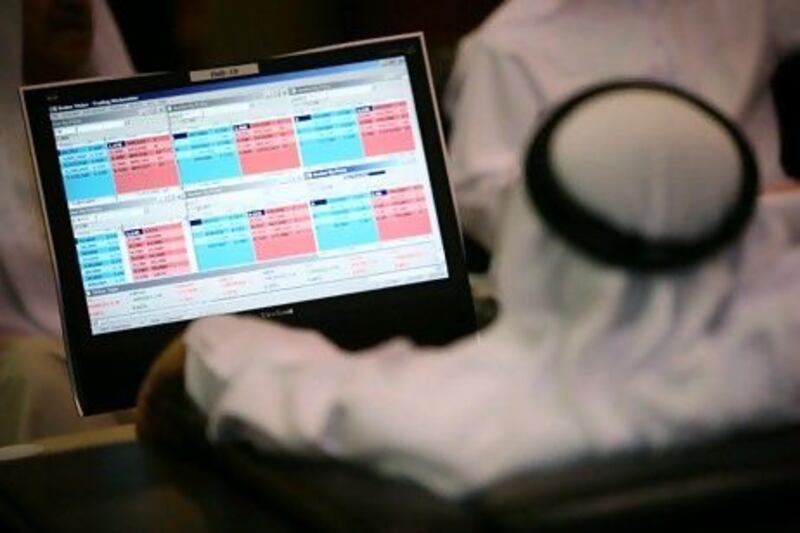The financial market regulator has developed guidelines to help encourage cash-strapped brokerages to merge amid depressed market conditions and slumping volumes.
The move by the Securities and Commodities Authority (SCA) comes as many brokers seek to wind up their operations as business slows.
"As part of our ongoing encouragement to brokerages to merge and create a stronger entity that is able to withstand low volumes in challenging times, we have introduced special provisions to deal with mergers, to regulate the process and protect the rights of all parties," said Maryam Al Suwaidi, the deputy chief executive at the SCA.
There are 59 brokerages operating in the UAE, down from 110 last year, according to the regulator's website.
Some have been forced to suspend trading or cut their costs after traded value sank to Dh49.2 billion (US$13.39bn) from Dh104.5bn last year and Dh237bn in 2009.
Al Mal Capital, a local investment bank, has laid off about 25 per cent of its staff and is scaling back its brokerage business. It emerged yesterday with eight employees laid off, said a source close to the company.
"Everyone in the industry is restructuring, even international banks are scaling back their operations, cutting business lines, shutting down research units," said the source, who wished to remain anonymous. "Al Mal is very liquid and has a solid balance sheet that is cash-rich. Anything they are doing is more strategic and probably aligning the business to be optimal and profitable going forward."
Earlier, Bloomberg News reported staff numbers at the company had been cut to 20, citing two people familiar with the matter.
Last month, Deutsche Bank pulled Christopher Laing, its head of equity capital markets for the Middle East and Africa, back to London after three years in Dubai. Nomura closed its Dubai equity research unit, although some leading regional companies will continue to be covered by Nomura analysts based in London. Also last month, HSBC said it was closing its retail equity brokerage in Dubai.
Recently, brokers made a proposal to the regulator to have several brokerage houses merge with the brokerage arm of a bank to boost liquidity and bolster balance sheets.
"When brokerages increase their reserves, they can enhance their activities to encompass not just trading in equities, but providing other client services such as asset management and research," said Nabil Farhat, a partner at Al Fajer Securities in Abu Dhabi.
A group of eight brokerages, including three that are units of commercial and investment banks, may merge to cope with a decline in trading volumes in local exchanges, Mr Farhat said.
"Most brokerages are down to their bare bones in terms of austerity measures and cutting expenses," said Mohammed Ali Yasin, the chief investment officer at CAPM Investment, an investment company that owns Asayel Shares and Bonds. "Under current conditions, brokerage companies need 7 per cent market share to break even. Anyone who is doing less than that is burning cash."






